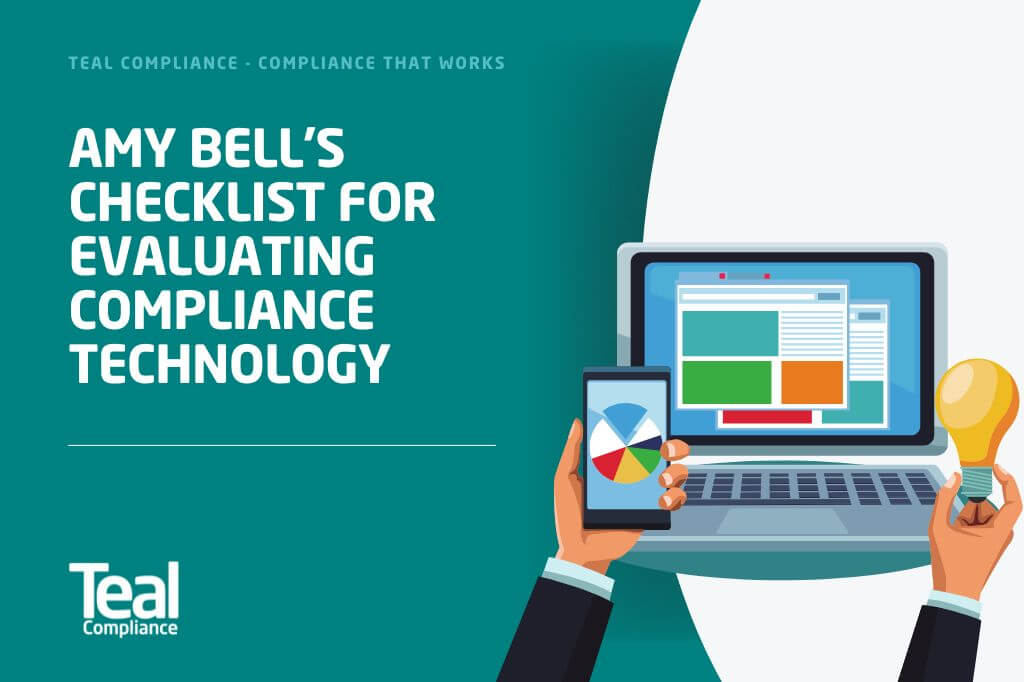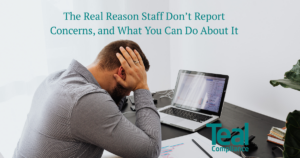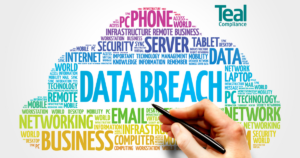Author: Amy Bell, CEO of Teal Compliance
At a recent session hosted by a Technology Group, someone in the audience asked me a great question:
“Who are your favourite legal compliance providers, and why?”
I’ve always said I’m tech agnostic. But truthfully, some solutions are a better fit for certain clients than others. So instead of naming favourites, I explained that it’s often easier to say why I discount a provider, and what makes others stand out for the right reasons.
How I Evaluate Technology Providers for Compliance
With so many law firms being approached by compliance technology providers promising smarter, faster AML processes, it can be difficult to know which ones to trust. As someone who has reviewed dozens of systems over the years, I’m often asked how I tell the difference between a provider that genuinely understands the legal sector and one that is simply repackaging a financial services tool.
Here’s how I evaluate them, and why some don’t make the cut.
When Sales Teams Don’t Understand the Legal Sector
The first reason I discount a provider is when their sales team simply doesn’t understand AML or the legal industry.
Many come from financial services and assume the same principles apply. They don’t.
The legal sector has unique obligations around client relationships, evidence, and auditability.
Worse still, some sales pitches make sweeping claims that just don’t hold up under scrutiny. If a salesperson can’t accurately describe how their product supports AML compliance, that’s usually where the conversation ends for me.
When Compliance-Critical Features Are Optional
Another red flag for me is when essential compliance features are treated as optional extras.
I once had a client who assumed the date of birth verification was standard in their system. It wasn’t.
After testing, we discovered the software would accept false data, because the feature was an optional add-on that no one had mentioned.
That’s not just a product gap. It’s a compliance risk.
When Data Leads the Design of the Tech
I’m also cautious of providers who start with data and then look for a use case.
The best solutions are built the other way around. They are developed by people who’ve done the job, understand the reality of client due diligence, and then apply data intelligently to support that process.
If a tool feels like it’s been built for a different industry and repurposed for AML, that’s a sign it’s unlikely to meet a law firm’s specific needs.
When Providers Support Compliance Knowledge and Understanding
Now, on the flip side, here’s what makes a provider stay on my green list.
I’m impressed by those who help firms understand and evidence compliance.
According to the Legal Sector Affinity Group’s (LSAG) technology guidance (Chapter 7), users must be able to explain how their software works, even if they didn’t personally choose it.
If a Money Laundering Compliance Officer (MLCO) can confidently describe the data sets used, the points where enhanced due diligence is triggered, and how profiles are assigned, that’s a strong indicator the provider has done things right.
When software supports that level of understanding, it’s adding real compliance value.
When Training and Transparency Are Built In
Finally, I keep providers on my list when they make life easier, not harder, for compliance teams.
They offer clear documentation to help firms assess whether the software reduces or increases money laundering risk. They publish version updates transparently. And they provide regular training, especially when functionality changes.
That’s not just good customer service. It’s part of helping firms meet their ongoing compliance duties.
Amy Bell’s Checklist for Evaluating Compliance Tech
Red Flags
🚩 Sales team doesn’t understand AML or legal obligations
🚩 Compliance-critical features are optional add-ons
🚩 Product built around data, not real client due diligence needs
Green Lights
✅ You can explain how the software supports compliance
✅ Provider is transparent, updates regularly, and trains your team
Ask yourself:
Does this technology make compliance easier, clearer, and safer to evidence?
My Final Thoughts on Compliance Technology
Choosing a technology provider isn’t about brand loyalty. It’s about trust.
The ones I recommend are those that make compliance easier to understand, explain, and evidence. The ones I discount are those that make it harder.
If a provider helps you meet your obligations confidently and transparently, they deserve a place on your list. If not, it might be time to ask some tougher questions.
I’m on LinkedIn speaking about this subject and you can catch up with the comments here.
Thanks for reading,
Amy




